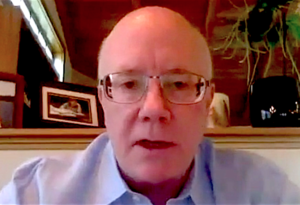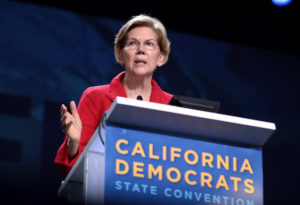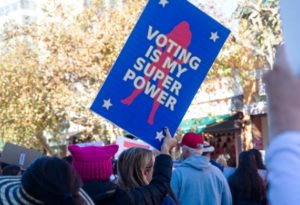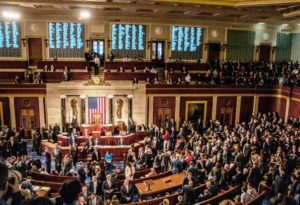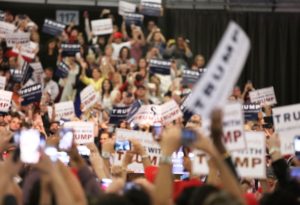Posts Tagged: polling
Podcast
Last week Capitol Weekly and the McGeorge Capital Center for Law & Policy presented a Post-Mortem of the 2020 Election, a half-day online conference in which a score of experts and insiders discussed the results of the election and provided a look-ahead at what they mean for 2021 – and beyond. This event was held on Thursday, November 5. We broadcast audio from each of the presentations as individual episodes of the Capitol Weekly Podcast.
News
A pair of Nov. 3 ballot measures seeks to confer voting rights on two wildly disparate groups of Californians — prisoners and teenagers. Prop. 17 would amend the state constitution to restore voting rights to prison inmates who have completed their sentences. Prop. 18, another constitutional amendment, would allow 17-year-olds to vote in primary and special elections if they become 18 by the next general election.
News
In our culture, conspiracy theories are running rampant, and elections seem to be particularly prone to the craziest among them. Republicans, led by the president, have claimed that vote-by-mail is unsafe, non-citizens are registered to vote and casting ballots. Ballot “harvesting” is causing rampant voter fraud, President Trump says, and the system is being rigged against him. Even Attorney General Bill Barr claimed, incorrectly, that vote-by-mail eliminates the secret nature of voting in the US.
News
Our November tracking poll for California’s 2020 presidential primary election shows some significant changes in the field, with the national field gelling around four major candidates and the potential havoc of new candidates entering the race. The poll, in the field since April, has now surveyed over 7,500 likely voters, utilizing data supplied by Political Data Inc. It uses an online survey emailed directly to voters deemed likely to vote in the March Democratic primary.
News
In the 2016 and 2018 election cycles, Capitol Weekly conducted several surveys for the primary and general elections. We examined voters’ opinions on the contests for president, U.S. Senate, governor, Legislature and Congress, as well as on ballot measureas before California voters. In total, we heard from over 100,000 voters, providing us with a significant dataset of voters and their preferences.
News
A number of California’s Republican-held House seats face fierce challenges from Democrats, and the tally of votes in these tight races may not be completed for days, even weeks, following the election. That’s the message in Capitol Weekly’s survey of more than 20,000 mail-in voters across California who cast their ballots prior to election day.
Analysis
California is at the epicenter of what could be a Democratic wave, and that’s amazing. In this election cycle, we are seeing something really astounding, yet many are treating it as if it was normal. Californians are poised to give Democrats anywhere from two to five — or even more — of the 24 Republican congressional seats across the country that Democrats need to win control of the House of Representatives.
Analysis
Is something wrong with public polling in California? The 2018 election season has been raucous, even weeks before the first votes are cast. And one of the contributing factors has been the seemingly erratic public polling, particularly in the top-of-the-ticket races. The veteran political observers at CalBuzz have called this year’s polling a “muddled mess.”
Analysis
ANALYSIS: The public opinion polling industry in many ways is at a crossroads. For years public polls were run with live telephone interviews using a system of “random digit dialing” or RDD, which allowed a poll to be based on samples which would be naturally balanced since all potential voters had the same probability to be administered a phone survey.
News
Throughout the 2016 election cycle, Capitol Weekly conducted several polls. Two of them, one during the primary and the other during the general, were targeted to voters right after they had mailed in their ballots. In total, more than 80,000 Californians participated in these surveys. Now, we’ve gone back asked these voters how they feel about the candidates they backed and about the issues, and we sought their perceptions about the political climate. We’ll start with the Trump voters.

